So now I've been back in London for over a week, and I've not found time to even catch up on the end of my American trip. I'll keep it roughly chronological, but it's worth mentioning upfront that part of the delay was due to my first experience of full-on jetlag on returning to London being infinitely compounded by the bizarre shock of finding myself in the middle of a terrorist attack on the tube back from Heathrow. I coasted through it in a daze of sleep deprivation and caffeine, and it seems like it's still sinking further in as time goes on. More on that later.
Painted Cave Road
The first thing that caught my eye as I scrolled northwest from LA on Google Maps was the Chumash Painted Cave Park just north of Santa Barbara. Michael had told me before I slept on the hill in Topanga Canyon that we were at the border between old Chumash and Tongva territories, and I've been fascinated by archaic/traditional rock paintings for many years now, so it seemed like a good first stop on my journey back towards the Bay Area.
I wasn't quite sure of where to turn off the 154 snaking north into the Santa Ynez Mountains, but when I saw that the name of the unassuming turn-off I was approaching was "Painted Cave Road", I thought it was a good bet. Frequently reduced to the width of a car, this road wound up the steep mountainside in ever-tightening twists and turns. The actual cave - just tucked away slightly above a stretch of the road shaded by small trees - was fronted by marvellous natural honeycomb-like formations in the rock. Surely, I thought, a wonder that attracted the people who decorated the cave to this site in particular. It seemed no coincidence to me, either, that just a short clamber down from the road next to the cave was a babbling stream, flushing sparkling fresh water through this parched landscape (many rock art sites in Europe are also oriented in relation to water features in the landscape).
The paintings themselves lurked in the upper rear reaches of the shallow cave, the mouth of which was sealed off with iron mesh. It was only on inspecting photos that I could discern the obvious reason for this protection: pointless contemporary initials and other doodles etched into the original paints. The paintings themselves were crowded clusters of crosses, serpentine figures and circles with all manner of decorations suggestive of solar connections. One curious figure stood out as slightly anthropomorphic, with its apparent waving hands, odd triangular shape and strange top hat-like summit. Well worth visiting, as much for the stunning natural frame as the enigmatic art.
Pacific Coast Highway
Heading north past Lake Cachuma and on towards Santa Maria and the Pacific coast, I jammed the personal stereo adapter I'd picked up in Burbank into the car's cigarette lighter socket and tuned the radio in to the weak FM signal it started broadcasting my MP3 player on. A nifty little solution, but not necessarily ideal. I pegged Sonic Youth's blasted guitars as the best soundtrack for the blazing heat and semi-arid hills, but every now and then I'd pass a break in the enclosing landscape and some energetic Latino pop would take over for a minute. A surreal occasional taster of the airborne culture around me.
Morro Bay heralded the start of the breath-taking coastal drive, and by then I'd decided that I would press on to reach Big Sur before the end of the day. So, armed with a huge bag of nachos, some passable salsa, and Spearhead's bouncing funk, I followed the setting sun northwest.
Big Sur
My main association with this place before arriving has always been the Esalen Institute, a centre for the "human potential movement" whose list of occasional teachers reads like a roll-call for popularisers of modern spirituality who are canny enough to avoid the tacky marshes of the New Age (think Terence McKenna, John Lilly, Colin Wilson, Alan Watts, Robert Anton Wilson and Stanislav Grof, for starters). Heck, Hunter S. Thompson was once the caretaker-cum-security there.
Well, I noticed the "by reservation only" sign for the centre's 120 acre grounds in passing; Big Sur's associations with people I'm influenced by were quickly swamped by the mind-stopping beauty of the place. Low, almost perpetually cloud-capped mountains rise to the east, the Pacific waves crash on the craggy shores, and in between Route 1 wends its way through stunning redwood forests. I felt like having a soundtrack, but nearly everything seemed out of place against such a swell of natural grandeur. Early Spiritualized instrumentals eventually fell into place as the perfect accompaniment. (It's no coincidence that Sonic Youth, Spearhead and Spiritualized are in alphabetical order. As just skipping tracks is a damn sight safer than browsing through my music folders while driving, the fact that the perfect soundtracks for the series of landscapes through which I drove that day were by bands following each other alphabetically was a grand blessing of serendipity.)
I spent a night at the Fernwood motel, reading Michael Ortiz Hill's book Gathering in the Names, occasionally unable to hold back a tear or two as I drank ale at the Redwood Grill. Co-written with Augustine Kandemwa, Michael's "spiritual twin brother" in Zimbabwe, who initiated Michael as an nganga (healer), it charts the intertwined course of these men's lives up to and past their meeting and mutual initiatory experiences. Michael's experiences as a nurse in the UCLA Medical Centre, tending to the terminally ill, trying to comfort those with hideous facial cancers, dealing with the often cruel practices his job required of him, became the core of his attempts to ground his Buddhist commitment to compassion, via the African tradition of water spirits he had recently taken on. It's sobering reading.
The nearby Henry Miller Memorial Library is well worth a visit, for books, sculptures, coffee and donation-based net access. (Miller said that Big Sur was the first place he learned to say, "Amen!" That's quite a claim given the life he'd lived until he moved there, but then, Big Sur really is that stunning.) Of the local state parks, the Pfeiffer had the most humbling redwoods, though the Andrew Molera - with its meadows and big beach - ended up seducing me for the longest time.
After my second night, in a cabin by the redwood-lined Big Sur river, I was refreshed and ready for my last burst of the Bay Area before flying home via New York.
One last night with New York
I was glad I left a night and a day spare between my flight into New York from the west coast and my flight back to London - it gave me a chance to catch up on the whole trip with Gin, a new friend I'd only managed to briefly hook up with on my first pass through the city. It was hot, but not roasting in the extreme as during my previous heatwave-plagued stay, so it was nice to experience the place without nearly keeling over. We ended up bar-hopping in Williamsburg, catching a fantastic thunderstorm just after midnight, getting utterly soaked in gorgeous cooling rain. The next bar had a black-and-white photo booth, so we captured our merry, sodden selves for posterity.
Gin got really excited at the prospect that we might not have missed the free pizza at a bar near her place, but it was past 3am by then and it didn't seem likely. Happily they were serving until 3.30. Half three in the morning, buy a pint and you get a good, free pizza. I'd not had pizza in New York so far; seemed like a good way to start, at the end.
I woke the next morning to Gin ragging me about London having won the Olympic bid. The proposed construction's threat to the Lea Valley had left me lukewarm at very best regarding the 2012 Olympics in London, so I couldn't even muster some playful boasts of nationalistic victory. We just headed over to Union Square to enjoy some cake from the farmer's market and some stupendously good iced green tea smoothies.
Welcome home
My flight was from JFK at around 6pm, to land at Heathrow on the morning of the 7th July at around 7am (which would be around 2am by my barely-catching-up-with-New-York body clock). I decided to coast through the next day on caffeine and not crash until the next evening as a way of dealing with jetlag, so I drank some beer in-flight, watched National Treasure (my review: piece of shit!), and generally kept awake.
I was on the Piccadilly Line heading into London by around 8.30am, but the train kept stopping every now and then due to some sort of signal failure at Caledonian Road. By the time more delays were piling up - due to "power surges" - as we approached Zone 1, I was wishing I was back in New York with their air-conditioned subways (which I don't know for sure are more reliable, but the "grass is greener" effect was kicking in as everyone on the tube started cursing London transport under their breath).
My aim for Finsbury Park as my place to switch to the Victoria Line was scuppered by Leicester Square, where the Piccadilly Line service was completely cancelled. I lugged my bags over to the Northern Line, and managed to get up to Warren Street to switch to the Victoria. Any hope of getting straight home was lost by Euston, however, where the tube just sat there.
It's odd in retrospect; at the time, I was just increasingly irritated at London Transport, my whining Englishness just flooding back into place. Sat with about twenty other people in a tube carriage, doors closed, we listened to the repeated calls in the station for everyone to leave Euston as our driver repeatedly apologised for the delay.
Eventually the doors were opened and we were asked to evacuate the underground station. Up above at the main Euston rail station, it was pretty hectic, people asking staff in exasperation what was going on with very little information forthcoming. I decided to just grab a pastry and some water, go outside and rest for a bit.
It must have been around 9.45am when I was walking away from the continental pastry shop in Euston, when alarms sounded and a call was made for the whole station to be evacuated. It was a minute or two later, as I stood amidst the chaos of people wondering whether I should get out of this mess (still in my dazed mind something to do with transport inefficiencies) or just sit at a bench with the young Asian woman who was tucking into her sandwich, that an almighty BOOM startled us all.
It seemed to me to come from the direction of the station itself, with a muffled quality that suggested it was underground. In the next day's slightly confused reporting, it seemed that the tube bombs had gone off in a haphazard staggered sequence, and I thought it was perhaps the Russell Square blast echoing back up the tube tunnels. But learning that all the tube devices went off together at 8.50am meant one thing: the bomb I heard was the Number 30 bus to Hackney, just round the corner in Tavistock Square, the sudden boom muffled and deflected by the buildings between it and where I stood at Euston.
My first reaction was to head for the nearest friend's home, which was Lee's place off Tottenham Court Road. But as I streamed with everyone else who was heading west along Euston Road, watching the police cars and motorbikes amass, aware of the helicopters above and sirens everywhere, still not really thinking too much about what might actually be happening, I at least thought: "Heading further into central London probably isn't the best thing to do." As it happens it seems Lee is currently out of the country, so that would have been a fruitless journey anyway. I was just desperate to be somewhere familiar where I knew I could crash out if necessary (this was around 5am by my time now!).
I headed back past Euston station, looking for signs of smoke from the station itself to no avail. No one was really panicking. Many people were milling about talking on their mobiles, some joking about the chaos, most queueing impatiently for the still operating but gridlocked buses or just walking away. I saw one young woman in tears on her phone. I just walked. Exhausted by lack of sleep and my ever-heavier rucksack, I slipped into the first green space I found, Oakley Square. I used "Oakley" once as a warm-sounding pen name, one that would reassure people that I was an affable old folklore researcher, not a red-haired druggie occultist. Maybe that echo of warmth drew me in, I don't know. I just took my rucksack off, drank some water, and finished the last few pages of the book that I'd not managed to read on the tube. Sirens blazed down Eversholt Street.
I rejoined that road going north, and decided Angel was my best destination. There's buses going my way there, the Victoria Line if it starts again, plus a company I do work for, someone familiar faces at least. I bore right, following my nose. A little way down this road, I overheard a girl on her mobile talk about some "gas explosions". Hah! I chided myself for the panicky torrent of fears about terrorist attacks I'd built up by now. Gas explosions! Of course! (Hindsight note: gas derives from the Greek for 'chaos'.)
But then my new-found clarity was derailed as the building I was passing became intensely familiar. What was this place? Where did I know it from? The realisation gradually arose out of the swirl of confused familiarity that I'd been here a few weeks before my trip to the States, to attend a Social Dreaming event themed 'Living in Contemporary Times'. The idea of Social Dreaming is basically free associating between each other's dreams, sticking to the dreams themselves, to gradually, and collectively, divine the landscapes of dream that we share, that reflect our social, global concerns rather than just our personal peccadilloes. The blurb for the event began:
Contemporary times are suffused by tragedy. Natural tragedies, like tsunami, cannot be avoided, but human tragedies can. AIDS, poverty, genocide, ethnic cleansing, terrorism, threats to democracy, totalitarian-states-of-mind, Holocausts, Gulags, corruption, wherever they occur in the world, are now part of our conscious awareness because of mass communication. They cannot be denied, or wished away. And there is the unintended, silent, looming tragedy of global warming, which may end all civilization. Will the human spirit allow us to survive?
That day was interesting, but not exactly revelatory. Much more existentially shocking was this moment, realising I'd blindly wandered to this spot again. As I turned around to survey the area, I was boggled to see, just across the street, the other end of Oakley Park. It was this park that myself and Jeff Gormly (who invited me to the Framemakers symposium in Ireland) had briefly retired to during the dreaming event to stretch our legs. I'd not recognised it at all when I wandered in from the other end.
Of course, by now I realised I was actually heading for King's Cross, so I thought maybe I would catch a bus there. However, I bumped into a small group of people on Pancras Road saying, for a start, there's no way I was getting to King's Cross, and, what's more, this really wasn't about gas explosions.
We were all pretty "up", all set on getting to Angel whatever transpired, chatting happily to the overwhelmingly helpful people who directed us along the canals towards Angel. None of us really knew what had just happened - we just helped each other on our ways home. Forget "The Blitz Spirit" - this was just people thrown into nervous excitement by having their mostly dreary routine demolished, their weary crusts cracking open to let natural kindness and communal goodwill through.
I got on a 73 bus at Angel, still with no real idea what had happened. Approaching Newington Green, though, a guy got on with a little radio playing for all to hear. It's strange and unnerving how events take on the hue of "reality" when you hear about them in mass media for the first time. Something between our need to share and collectively validate experience, and the many forms of bastardisation that modern politics and commerce have subjected this need to. In any case, the woman on the radio was talking about explosions on the tube network, plus an apparent bomb on a bus. People were probably safest in buildings, as there had been no warnings and public transport was being randomly targeted.
I wasn't the only person to get off at the next stop.
I then realised that my MP3 player had FM radio, too, so I stuck that on to see what more information I could gather. It was only as I approached my friend's hair salon on Stoke Newington Church Street that the reality that people had just lost their lives sunk in. I choked back tears, and arrived to meet the first familiar face of the day.
As I said, the whole series of events in London on 7th July have been very slow to sink in. Thankfully no one I knew was involved in any way - which left me pondering just how close my brush was. Some news sources, like the BBC, seem to have the ill-fated Number 30 heading towards Marble Arch before its diversion, even though the wrecked destination sign in all news images plainly says Hackney. Those going with this as the destination have the bus calling at Euston and then being diverted south towards Tavistock Square. There's still confusion over the bus bomber's actions. It seems obvious to me that the destruction of at least one above-ground target would serve the terrorist's image-motivated purposes, giving us a clear picture of devastation for our fears to totemise. Even so, the speculation that the fourth bomber had caught the Victoria Line south from King's Cross, only to get off at Euston when his bomb failed, catching the bus there and detonating late... It all inevitably conjures that "alternate timeline" of personal nightmare, where I don't go to get a pastry, and decide to get on the first bus outside Euston going northeast.
Equally inevitable is the necessity of not dwelling on this, and trying to digest the realities of what happened. Especially, the reality of suicidal bombing attacks happening here and now in the city where I live. I've been tremendously encouraged by some of the reactions from Londoners. The refusal to be swept into knee-jerk reactions has been much stronger than I'd hoped - but then, the aftermath of 9/11, and the Iraq War, have really lowered the bar for hope.
I'm doing jury service at the moment, and it's odd that I've had the opportunity of having dinner every day with a group of Muslims (among the rest of the east London cross-section in the juror's canteen) in the aftermath of this event. Their response is pretty strong and united: why are these extremists wrecking decades of effort at integration in Britain? One woman was denouncing them for claiming support from the Koran, arguing that if it's advocating murder, it's not religion by definition. Part of me looked down on this as a bland state of denial; part of me wondered if she's speaking from the heart, and would argue the case for loving religion in the face of every one of the billions of examples of horrendous violence committed in the name of a higher spiritual power. In all, I just felt it was good to have this close one-on-one contact with Asian Muslims in the wake of these attacks, an experience my routine never gives me. Even if they're saying the same things that are flashed past you on the news, actually talking with people usually makes a huge difference. (Well, not the greatest revelation, but I need reminding sometimes, OK?)
With talk of laws against "indirect incitement" rumbling around Westminster, my heart sinks. I wonder if British people are feeling each report of bloody deaths due to suicide bombs in Baghdad a little more keenly now we've had a taste. It seems it's only by extending our sympathies (think a little about that often trite phrase) more globally that we might have enough collective insight to unpick this nasty historical tangle we're in. We already have enough laws to lock up pretty much anyone presenting the slightest danger to society. Passing new ones just looks like a political façade at best, a theatrical display of apparent "action"; at worst, we're tying our own shoelaces together, setting ourselves up for some serious falls a little way down the line.
At a time when honest, open, fearless dialogue is merely the starting point for moving forward, new laws potentially restricting publishing, art and journalism would be disastrous. Extending our sympathies, in the widest sense, to everyone caught up in this brutalising cycle of oppression, dominion, pride, fear and revenge, requires much more than lip service to today's victims and the frequent use of the word "evil".
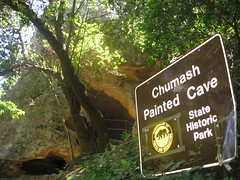
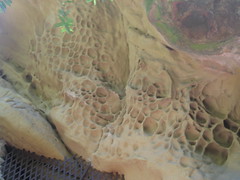
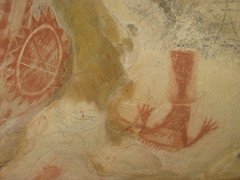
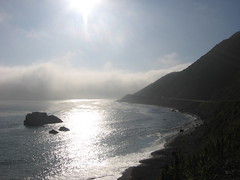
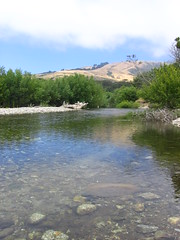

No comments:
Post a Comment